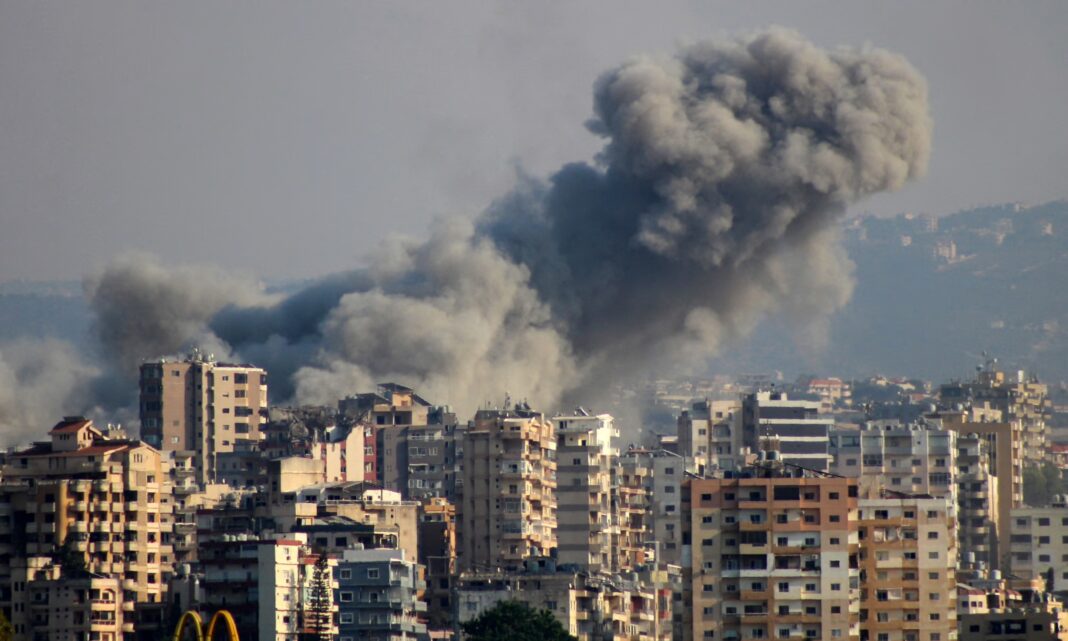Talks Begin in Israel for Ceasefire with Hezbollah
Senior U.S. officials recently visited Israel to work on achieving a ceasefire between Israel and Hezbollah, the armed group in Lebanon. Both countries have suffered heavy losses, with civilians caught in crossfire and tensions at an all-time high. Discussions have become urgent as the year-long conflict sees ongoing civilian fatalities in both nations. The United States aims to establish peace by engaging both Israel and Lebanon in talks that would bring an end to hostilities.
Escalation in Lebanon Leads to Civilian Deaths
In Lebanon, the conflict has severely impacted civilian areas. Bombing continues in the north-east Bekaa Valley, while in southern Lebanon, infantry battles persist. Lebanon’s health ministry recently reported 45 deaths from Israeli airstrikes over the last 24 hours, many of whom were civilians. The region’s intense bombardment has left families devastated, as entire households have been impacted by the strikes.
The town of Baalbek, a Unesco heritage site, has become a focal point. After Israel issued evacuation orders, most residents fled, although a few remain despite the risks. Airstrikes have hit areas surrounding Baalbek, causing further destruction and leaving rescue operations underway for those trapped in the rubble.
Hezbollah Rockets Hit Northern Israel
Meanwhile, in northern Israel, Hezbollah rocket fire has led to civilian losses. Recently, seven people, including four foreign agricultural workers, were killed in one of the worst days since Israel began ground operations in Lebanon. The ongoing rocket attacks have forced evacuation orders and escalated fear among residents. Despite Israel’s response with evacuation efforts, some farming continues with permission, leaving workers vulnerable to incoming rocket fire.
Israeli health authorities reported two additional casualties from a later Hezbollah attack. The rockets landed in olive groves where people were working, further highlighting the tragic impact on civilians.
U.S. Ceasefire Proposal: Seeking Stability in a Fragile Region
The United States has proposed a potential ceasefire agreement, similar to one from 2006, to help bring stability to the region. The proposal suggests Israel would withdraw its forces from Lebanon, and the Lebanese army would secure the border, while Hezbollah would reduce its armed presence in the south. Israel would retain self-defense rights to prevent Hezbollah from returning. However, these conditions face scrutiny as leaders in Lebanon and Hezbollah have yet to agree on the terms.
As U.S. officials push for an end to the violence, these diplomatic efforts face challenges due to the complex requirements involved in ensuring both sides’ security needs are met.
Damage to Medical Facilities and Civilian Infrastructure
As conflict persists, crucial infrastructure in Lebanon, like hospitals and aid organizations, has also been affected. In Baalbek, the Dar Al Amal hospital has seen its staff numbers drop by half due to safety concerns, limiting its capacity to provide essential medical services. Further complicating healthcare access, airstrikes have impacted the hospital’s surrounding area, putting both patients and medical staff at risk.
In addition, the United Nations Relief and Works Agency for Palestine Refugees in the Near East (Unrwa) reported damage to its offices in the West Bank’s Nur Shams camp. Unrwa, which has supported Palestinian refugees in the region, accused Israel of targeting their office, though Israel disputes this, claiming the damage was caused by nearby explosives.
Palestinian Unrest and Growing Casualties in the West Bank
In the West Bank, Israeli operations continue against militant groups, with recent reports of Palestinian casualties. Israeli forces conducted an operation in the Nur Shams refugee camp, targeting individuals involved in planning attacks. Casualties continue to rise, adding further instability to an already tense situation.
Future of Unrwa Operations in Jeopardy
Amid escalating violence, Israel recently passed legislation that impacts Unrwa’s operations, particularly in Gaza, where their assistance to Palestinian refugees is critical. The new law could make it difficult for Unrwa to continue its work, even as the organisation deals with damage to its offices and limited access in conflict zones.
Ceasefire Hopes and Continuing Conflict
As talks proceed, the international community watches closely, hoping for a ceasefire. The U.S. continues to play a key role in diplomatic negotiations, pushing for an agreement that may bring an end to civilian suffering. Both Israel and Hezbollah’s demands, a resolution remains uncertain.

